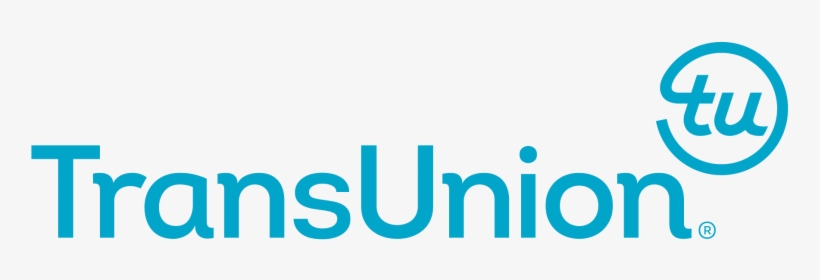“Getting Big Business South Africa and Government to pay their small business suppliers on time is one of the biggest challenges facing small businesses and when the problem persists too long, it can ultimately shut down a small business. More than ever before, now is the time to ensure that all your small business suppliers are paid quickly. We are urging Big Business South Africa and Government to release these all important payments now”, That’s the urgent plea from Mike Anderson: NSBC Founder & CEO.
COVID-19 and the economic downturn has and will continue to have a devastating impact on small businesses throughout South Africa. Small businesses need to pay their workers, their rent, suppliers and other key operating expenses, and survive as a family. What they don’t need right now, or at any time in fact, is that additional burden of not receiving payment on outstanding invoices. We have limited control over how long the pandemic will disrupt our nation, but we are in control how quickly we can pay our small business suppliers , says Anderson.
For any business, the amount of money flowing in or out is critical to its success. When money is tight, paying basic bills can get challenging. But when cash is plentiful, a business can invest in its future by expanding, buying new equipment, hiring key staff or retaining key staff by rewarding them further.
Anderson continues, through the Prompt Payment Code, a National Small Business Chamber (NSBC) initiative, the NSBC is challenging the way small businesses are being paid. We are championing the importance of big business and Government paying small business suppliers within 30 days or much quicker. It’s a highly recognised process where Business South Africa and Government openly commit to paying small businesses on time.
The findings of the recent COVID-19 National Small Business Survey clearly indicates that late payments are at an all-time high as small businesses are waiting too long to get paid. The average amount owed to each small business is now at its highest level. Big Business and Government are mainly to blame for small businesses waiting for payment. More than half of all small businesses in South Africa are burdened with late payments. The result is that small businesses are going out of business due to late payments.
Intentional late or non-payment is totally unacceptable, says Anderson, as in most cases when a small business goes out of business a family goes out of business. Procurement policies urgently need to be changed to accommodate for early payments. Late payments to small businesses coupled with the current crisis and the economic downturn spells out disaster for many small businesses, the mainstay of our economy, the very engine of our society and the future of job creation.
We see small businesses going out of business every day, in many cases due to cash flow as a result of late or non-payment. Prompt payment is vital to the cash flow of every business, and especially to smaller businesses. The Prompt Payment Code is about encouraging and promoting best practice between government, larger organisations and their small business suppliers.
“We all have a collective responsibility to do whatever we can to keep small businesses in business and their workers employed. By paying small businesses quickly, this is the most meaningful step in the right direction
Media contact:
Twané Gouws
Email: twane@nsbc.africa
Website: www.nsbc.africa
Cell: 084 603 1763
| Keep recycling, urges RecyclePaperZA JOHANNESBURG – February 17, 2020 – More than 12 million tonnes of paper and paper packaging have been recovered for recycling in South Africa over the past decade. This, according to RecyclePaperZA, the country’s paper recycling association, has ensured that waste paper is diverted from landfill and recycled into new products – tissue products, newsprint and paper packaging for the agricultural, manufacturing and retail sectors. In 2018, South Africa collected 71.7% of recoverable paper and packaging*, amounting to 1,285 million tonnes. “South Africa is in the enviable position of being able to use up to 90% of its recovered waste paper locally by recycling it into new paper, packaging and tissue,” says Anele Sololo, general manager of RecyclePaperZA. The balance of waste paper is exported.A difficult time for paper industry, but don’t stop recyclingCurrently, the global paper recycling industry is faced with over-supply. “This means there is more waste paper available than there is use for it,” says Sololo. There are various economic factors at play, not least of which is China’s stricter requirement for cleaner waste imports since 2017. This means that around 30 million tonnes of waste paper from around the world needs to find a new home and use. In South Africa, the severe drought in fruit-growing regions has had a knock-on effect for the paper packaging sector. “Corrugators produce less boxes for fruit with the result being that mills produce less paper which affects waste paper consumption rates,” explains Sololo.“It is important to understand that collectors are paid for the recyclables they collect, and the higher the value of that recyclable, the more likely they are to collect it,” says Sololo. The lower demand in the market will effect a price drop as mills need to ensure they remain commercially viable, and unfortunately this affects recycling collectors and traders.The South African paper industry is however investing in research and development of alternative uses for recycled paper to ensure that recyclable paper and paperboard continues to be diverted from landfill and help improve demand for recycled paper fibre. Different recycled paper products need different ingredientsOn the home front, some citizens may be a little confused about why some types of paper – such as newspapers – are not wanted by collectors. Just as chocolate cakes may differ slightly in terms of their ingredients, so too does paper. Printing paper, tissue, cardboard boxes, paper bags and sacks all require different types and quantities of raw materials. “The difference in paper recipes may even be customer-specific which makes papermaking an exact science,” says Sololo.Historically newspapers were required as a raw material for newsprint manufacturing. The declining newspaper consumption, largely due to online media, has resulted in the closure of newsprint machines in South Africa, leaving only one operational newsprint machine. “In 2011, South Africa produced 316,725 tonnes of newsprint,” says Sololo, adding that in 2018, the annual newsprint production was less than half the 2011 figure at 113,912 tonnes. This in turn has reduced the demand for used newspapers by paper mills. Newspapers are still used in the manufacture of moulded fibre products such as egg cartons, takeaway cup holders and fruit trays. “This is where brand owners and retailers can help make a difference – by moving from plastic to paper for their packaging,” notes Sololo. A classic example are polystyrene vegetable and fruit trays – these can be made effectively from paper pulp.Some grades of paper are in higher demand than others. As an example, there is more use for white paper as it require less deinking and cleaning than newspapers and magazines. White paper also contains better quality fibres for “paper recipes”. What are the various types of paper recycled into?White office paper is made from certified, sustainably produced virgin wood fibre, especially if it is made in South Africa. White paper, which contains good quality fibre, is recycled into tissue products and is also added to the other paper recipes. Brown cardboard boxes are repulped into new cardboard boxes and brown kraft paper which in turn can also will be converted into sacks and bags.Liquid packaging board (beverage cartons and paper cups) comprises long, strong virgin fibre, also from sustainably managed forests, which is a great ingredient for paper products that require strength. The plastic and foil layers in liquid packaging board are separated from the paper in the recycling process and can be used in a range of applications such as plastic garden furniture.Common or mixed paper and cardboard packaging (cereal and dry food cartons, coloured paper, magazines, toilet roll cores) are classifed by the industry as “common mixed waste”. These go into recipes for various paper products even tissue – if the mill has a deinking plant. What should we do with “old news”?Fortunately newspaper is very versatile and can be used for many things. Here are our top five but you can find a more comprehensive list on www.recyclepaper.co.za. Animal shelters – donate your old newspapers to animal shelters who will use them to line the kennels and catteries. Compost and worm farms – earthworms love a tasty snack of newspaper. Add dampened, shredded newspaper to your compost heap or worm farm. Fruit and vegetable drawer liners – place sheets of newspaper at the bottom of the fruit and vegetable drawer in your fridge. They will absorb any mess from rotten produce, and will also keep the drawer free from odours. Gift wrap – use newspaper to wrap gifts and decorate with some string and sprig of rosemary or lavender. Table padding – lay newspaper underneath a table cloth. It’s an excellent replacement for expensive padding, and will help protect your table from spills and other damage.Where should I take my paper recyclingIn November last year, Mpact Recycling, a RecyclePaperZA member, announced the discontinuation of its kerbside collection programme. While we recognise that this causes inconvenience to a number of its loyal supporters, there are other options available:Visit www.recyclepaper.co.za – Check out our “Where to recycle” page for some useful links.Support your neighborhood recycling collectors – find out what they collect and put this in a separate bag for them. You may opt to support the same person each week or simply put a bag out on your pavement on a first come, first serve basis.Support a school or community centre under the Mpact Recycling paper bank programme. The company is in the process of upgrading some of its sites so separation is key: white paper in one bag, cardboard in one bag, beverage cartons in one bag, cereal boxes, coloured paper and where applicable magazines in one bag. Look for your nearest paper bank here. Support recycling collection businesses which offer a paid service. Do a web search for “recycling collection services” for your area.Explore your local shopping centre and find out if they have a recycling zone.So keep up with those recycling efforts! And keep your paper clean and dry, and separate from other waste. * Recoverable paper excludes paper which is unrecoverable or unsuitable for recycling. For example, toilet tissue and sanitary products, cigarette paper and archive material. |
About Us
 The Northern Business Review is a business community newspaper that provides a platform for businesses to market their products and services, as well as build their brand, but equally important the publication provides information, advice and topics of interest, including business, entrepreneurial, economic reviews and simple ideas to grow your business. The publication has a primary objective to “uniquely” represent businesses to a wide audience across the community as well as provide a media platform of business articles and information that affect, influence and uplift the business environment within our defined geographical and cultural community.
The Northern Business Review is a business community newspaper that provides a platform for businesses to market their products and services, as well as build their brand, but equally important the publication provides information, advice and topics of interest, including business, entrepreneurial, economic reviews and simple ideas to grow your business. The publication has a primary objective to “uniquely” represent businesses to a wide audience across the community as well as provide a media platform of business articles and information that affect, influence and uplift the business environment within our defined geographical and cultural community.
Recent Posts
- The HUAWEI MatePad T 10s 64GB: the ideal tablet for families
- TIGER BRANDS CULINARY DIVISON PARTNERS WITH BACARDI HOLIDAY CLUB FESTIVAL AS THE OFFICIAL FOOD SPONSOR
- Prevent the silent onset of chronic kidney disease. Here’s how
- 15-minute neighbourhood trend on the rise across SA
- 3Sixty Biopharmaceuticals enters into a sales and distribution agreement with Adcock Ingram’s OTC division














